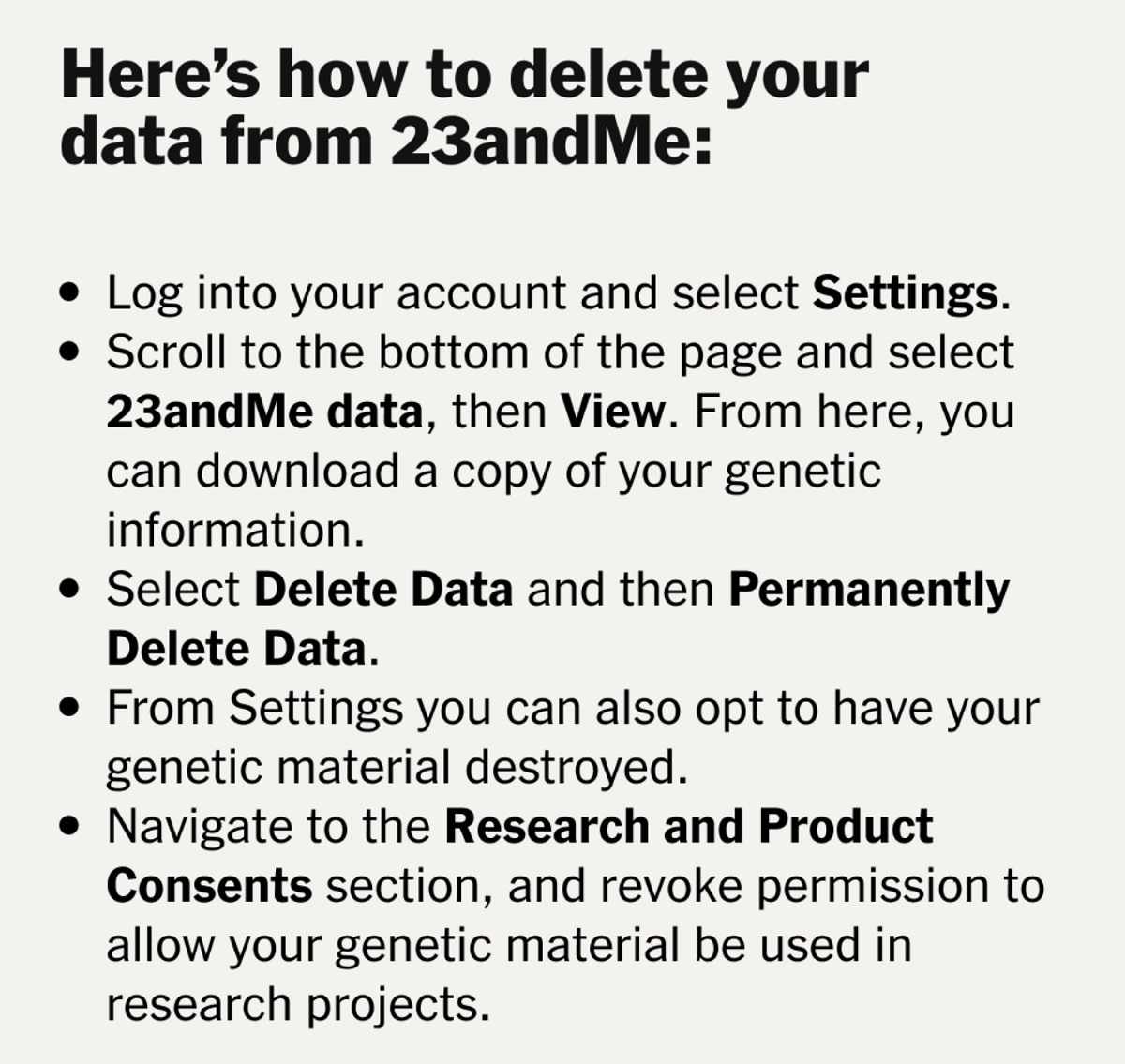If you've ever used 23andMe, now is the time to reconsider whether or not you should keep your data with the company. Last year, it was in dire straits and looking for a buyer. So far, nothing has come of that. As a result, it was recently announced that it had filed for bankruptcy protections. While you might wonder why it’s a big deal, if you have used their services, you should be concerned. So, what indeed does this mean for you?
Why Deleting Your Data Matters
Data Can Be Resold. Even if you trust 23andMe, there is no guarantee that if they do sell the company, your data will remain protected. The buyer may not be held to the same privacy policy as when you signed up.
Third-party partnerships and potential future breaches. In 2023, hackers breached 23andMe’s systems, gaining access to sensitive genetic data, personal information, and even ancestry details of millions of users. While you cannot do anything about that now, you can prevent someone from stealing it again by deleting it.
 Exposure of the Data is Irrevocable. Unlike passwords, you can't change your DNA. Once stolen, your genetic data is permanently compromised and could be used against you.
Exposure of the Data is Irrevocable. Unlike passwords, you can't change your DNA. Once stolen, your genetic data is permanently compromised and could be used against you.
New Identity and Privacy Risks are Unknown. DNA data could be used for identity theft and fraud. Considering the changing cybersecurity landscape, it may also be used in ways we can’t yet predict.
How to Delete Your Data
To remove your data, log into 23andMe, go to "Settings" > "Delete Data", and follow the instructions. Additionally, request physical sample destruction to ensure no remnants remain. Take control of your privacy—your DNA belongs to you, not a corporation.
Given the highly personal nature of DNA information—far more sensitive than a credit card number—the risks of keeping your genetic data in their system are too great to ignore. It’s time to delete it.